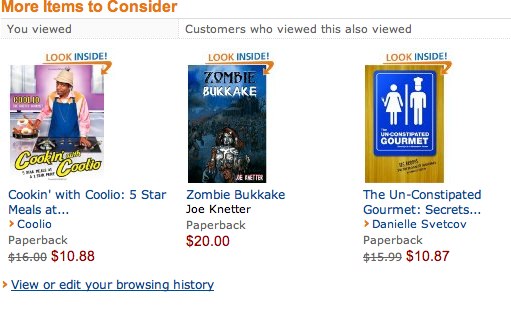There’s an article in yesterday’s New York Times about the Department of Justice opening an inquiry into Apple’s “bullying tactics” in digital music sales. The biggest example given of said “bullying” was threatening the record labels if they worked with Amazon:
In March, Billboard magazine reported that Amazon was asking music labels to give it the exclusive right to sell certain forthcoming songs for one day before they went on sale more widely. In exchange, Amazon promised to include those songs in a promotion called the “MP3 Daily Deal” on its Web site.
The magazine reported that representatives of Apple’s iTunes music service were asking the labels not to participate in Amazon’s promotion, adding that Apple punished those that did by withdrawing marketing support for those songs on iTunes.
First of all, I find it deliciously ironic that the record labels are now the victims of bullying. Secondly, is anyone actually surprised by these tactics? Maybe I’m just jaded, but when I worked in radio implicit threats were an acceptable tool in the arsenal for record promotions.
Record Label: “If you don’t play this record by <insert new band the label is trying to break>, don’t expect to get <multiplatnium selling artist> for your summer festival show.”
Those words were never said explicitly, but the general idea was understood. It also worked the other way:
Radio Station: “You gave <competing station across town> an exclusive interview with <large band>? Don’t expect to get airplay for <your next baby band>.”
Tit for tat business tactics may not be the nicest or most optimal solutions, but they’re human nature. We get wronged; we want revenge. New girlfriend sees you talking to another chick at the bar? DOGHOUSE. The same thing is essentially going on here with Apple, Amazon, and the record labels.
Granted, those were bygone days in which both parties had leverage on each other. It was a symbiotic relationship; a give and take among equal powers. Now, it seems as if Apple has all of the power here. The record labels are so desperate for iTunes’ short-term sales that they’ll acquiesce to these types of demands and whine to Mommy (the DoJ) about it.
At the end of the day, I think this is an irrelevant battle. Inquire and regulate all you want, but you can’t change human nature. On top of this, I don’t see digital a la carte sales being the music market of the future. We’re seeing consumer excitement shift more towards cloud/subscription/social services.
But that’s a discussion for another day.

